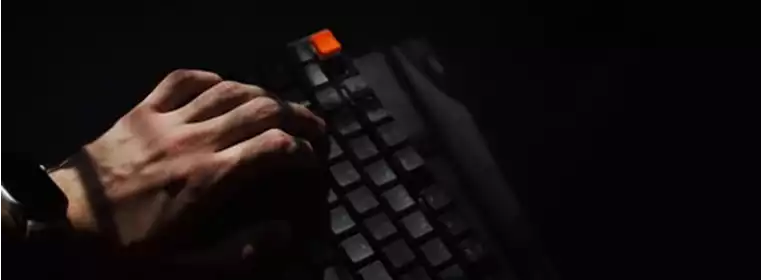We Need To Talk About Esports Players' Mental Health

With more and more esports players hitting the big time, the problems are also mounting up. Stories of Adderall use, burnout, physical issues… but what did we expect? We threw money, adoration, fame, and an immense amount of pressure at players, some of whom are barely 18 years old. We’re at a time in history where esports has become so huge, yet still comparatively so young when we look at other sports. Now is the point where any decisions we make will affect future players going forward for (hopefully) many more years to come. So it's the perfect time to set a precedent. Well, technically ten years ago, but it’s never going to be better than right this second.
For those of you relatively new to the scene, there’s probably a lot of things that you have already picked up on that we could do with improving, and this one’s for you. It might seem obvious, but let’s dive in.
We’re seeing a lot more esports players coming forward with their stories of burnout, mental exhaustion, and cracking under the inevitable pressure of the expectations of potentially millions of fans. Retiring in your early twenties is no longer a dream that we consider while wearily getting ourselves ready for another Monday in our 9-5, but an absolute necessity for some esports professionals.
China’s most famous esports player, Jian ‘Uzi’ ZihaoA, retired at the incredibly young age of 23 from his beloved League of Legends, citing his mental and physical health deterioration as the reason.
Mental health support, physical side effects, money management, even career aftercare are all issues that need to be addressed.
And yes, I know. It’s hard to get your head around. You may be thinking, ‘How dare these people who have our dream job be in any way stressed? They get to do what we do with our mates in the evenings as a full-time job!’
Well, no. It’s not. That game of Warzone you have after work with Ste, Andre, and Dave isn’t quite the same as competing at a professional level. It’s the difference between you going for a jog around the park, and Mo Farah getting gold at the Olympics.
For esports players, the initial hit of dopamine comes when you first start out. Then maybe when you get signed, when you win, when you win again... but what goes up must come down. The more successful you become, the higher calibre of players you’re competing against. The immense pressure of constantly ensuring that you’re bettering your game, keeping ahead of the competition; there are no days off. 14-hour days are not unheard of, and even the days that they’re not playing, practising, or doing interviews, they’re monitoring their social media, streaming, and trying to fit a personal life somewhere in between. For many players, they’ve gone from playing their favourite game in their bedroom (cliché, I know, but stay with me), to almost overnight having pressure from all sides to bring home a win.
And then, once the wins aren’t happening as often, the sponsorships start drying up, and you’re not pulling in as many likes on Twitter as you used to - the impact on your self-worth must be soul-crushing. Not only that, but financially, there is a serious issue with being able to manage their money effectively. Long-term isn’t something many people think of, however according to the British Esports Association, 'anything from the mid to late twenties' is common for esports players to retire. So what then? Sure, there’s coaching jobs, but if you want out altogether, options are limited. Pride may make it difficult to return to the standard world of work. However, some people are already premeditating these issues by, for example, playing in an esports team in their spare time, while concurrently studying for a degree. In fact, Overwatch League (OWL) had their first university student signing this season with Enrique "Joobi" Triana.
But there are things that the esports community can do, and there are measures that professional teams can put into place. We just need to make sure we’re doing them before things go too far.
I’m going to address the elephant in the room - trolls. There are so many that see their favourite team miss out on a win (“It looked so easy! How did they miss that?!”). But here’s my solution: rather than taking to Twitter to share their frustrations or, God forbid, DM them directly - why do they just... not do that at all. People win, people lose. There are good days and bad days. You just have to take a look at the replies to some of the biggest esports players in the world on social media to see how bad things have become. We need some humility, decency, and empathy. The people playing these games are actually humans, after all.
I appreciate that this is wishful thinking. When it comes to hate, we’re never going to be rid of the trolls completely. But perhaps what I’m really saying is that we need to find a way of holding people accountable. If you see someone you know giving crap to someone online, call them out. If someone boasts to you about how they got a reaction out of a celebrity, tell them how sh*tty it is. Sadly, there are a lot of people who use ‘throwaway’ accounts, and that is a wider issue when it comes to social media altogether. Perhaps teaching esports players to completely ignore their DMs is the only real way of shielding them from inevitable hate online.
So now, hypothetically, your favourite player is constantly battling with themselves to ensure they’re at the top of their game, as well as dealing with their ‘fans’ when things don’t go as well as they could have. There aren’t any surprises whatsoever when it all gets too much.
However, it’s not all bad news. There are people in the industry who are forging a career by helping other people. An example is Mia Stellberg, a sports psychologist who has worked with the likes of Astralis, SK Gaming, OG, and ENCE, helping them win world championships in both DOTA 2 and Counter-Strike.
In an interview with Red Bull TV, she said: “One of the most important things I want to change in the world of esports is player wellbeing. So more and more people are becoming more aware of the fact that players need to have a wellbeing to be able to perform at their best levels.
“Working for Astralis was the starting point for me into the world of esports. As a psychologist, you have individual work with an individual athlete, to find out how they’re doing and how to support them in becoming a better version of themselves. Then you have the team - who is in the team? How the team functions. So there’s many things to observe, and there’s actually many things to improve. Then I also work with the coaches, I feel that I’m the coach’s right hand - supporting them in their job.
“I’m strongly against practising ten hours a day seven days a week, I feel that no matter what your profession is you’re entitled to have a life and a social life and perhaps someone you’re dating with.
“For me, I think in general being an esports athlete is more demanding than being an athlete on a traditional side - you get to travel much more, a lot more games and tournaments, jet lag, fan base, everything with the social media, and they are also slightly younger. So there I see we need the support of real professionals.”
So the need for support has been recognised. That in itself is huge. In fact, there are a lot more teams ensuring mental and physical support is offered to those at the tier 1 level of esports. Sadly, it isn’t yet the norm or the average, but we are getting there. The need for this support across every professional team cannot go under the radar.
Obviously, the solution to the problem itself is not as simple as ‘stop trolling’ and ‘hire sports psychologists’, but it’s a start. When we look at traditional sports, there is so much research, long-term effects examples, and support systems in place. However, this is down to these sports being scrutinised and being offered the necessary resources over the years; esports has not yet had the luxury of time.
